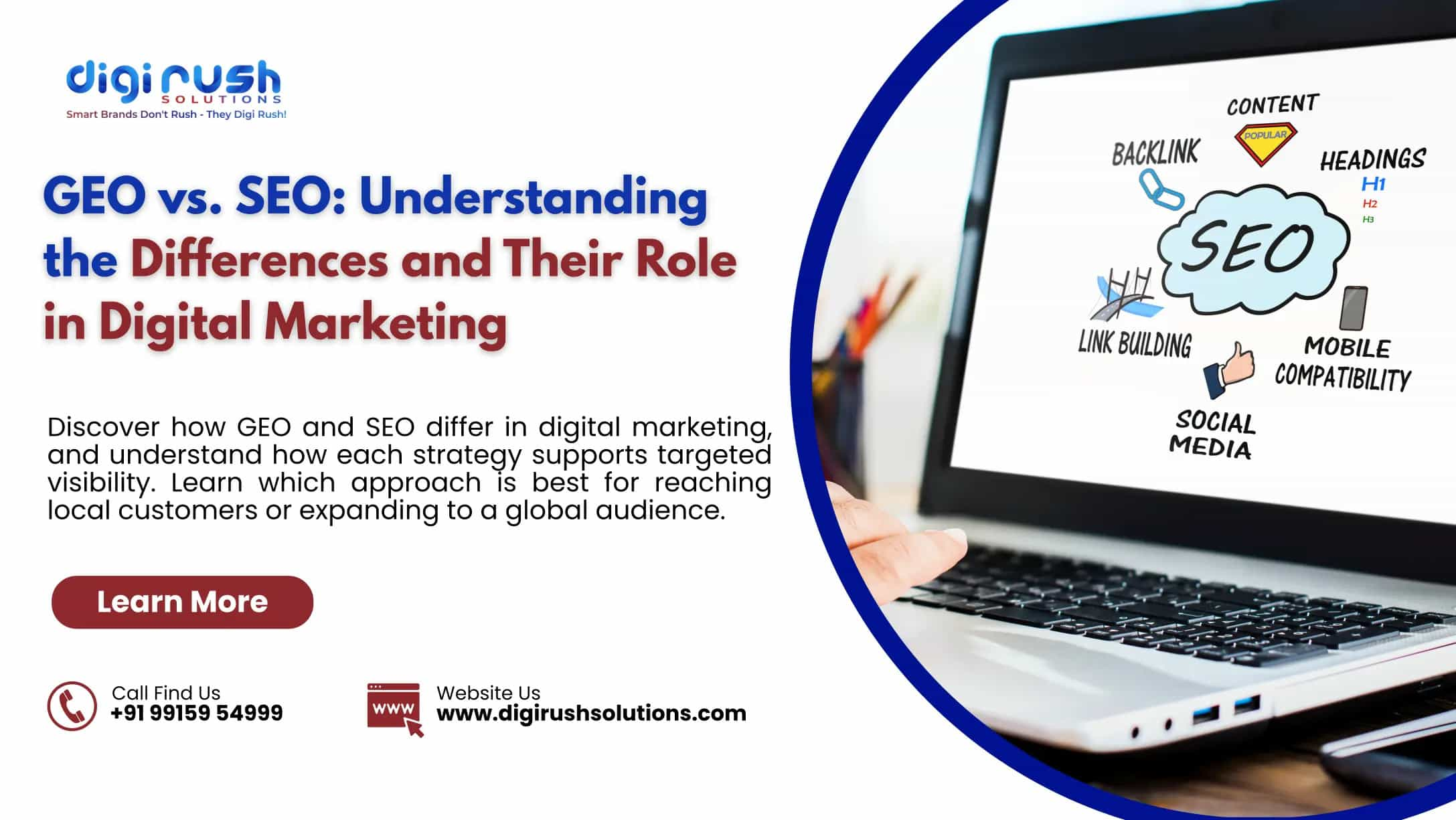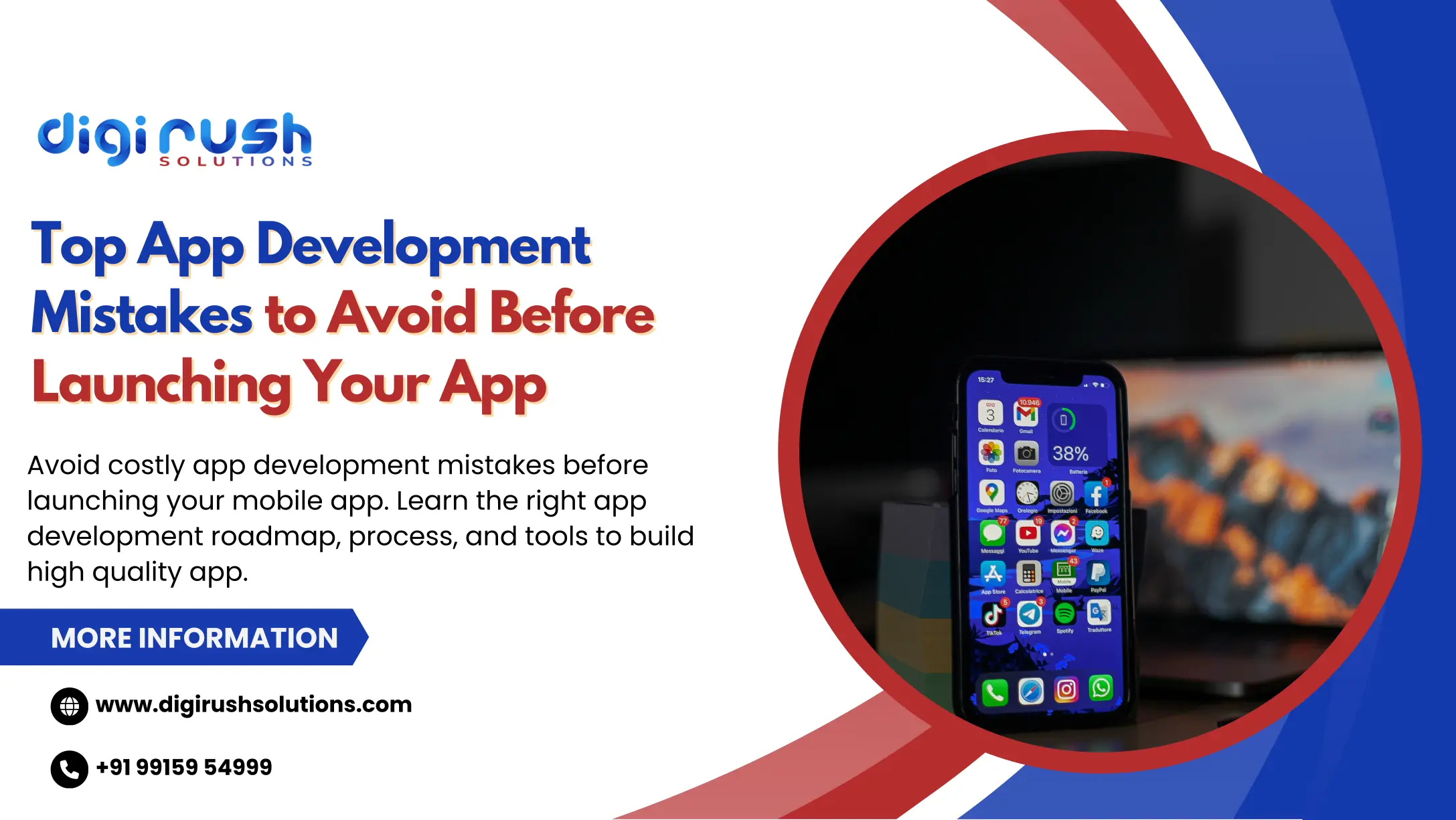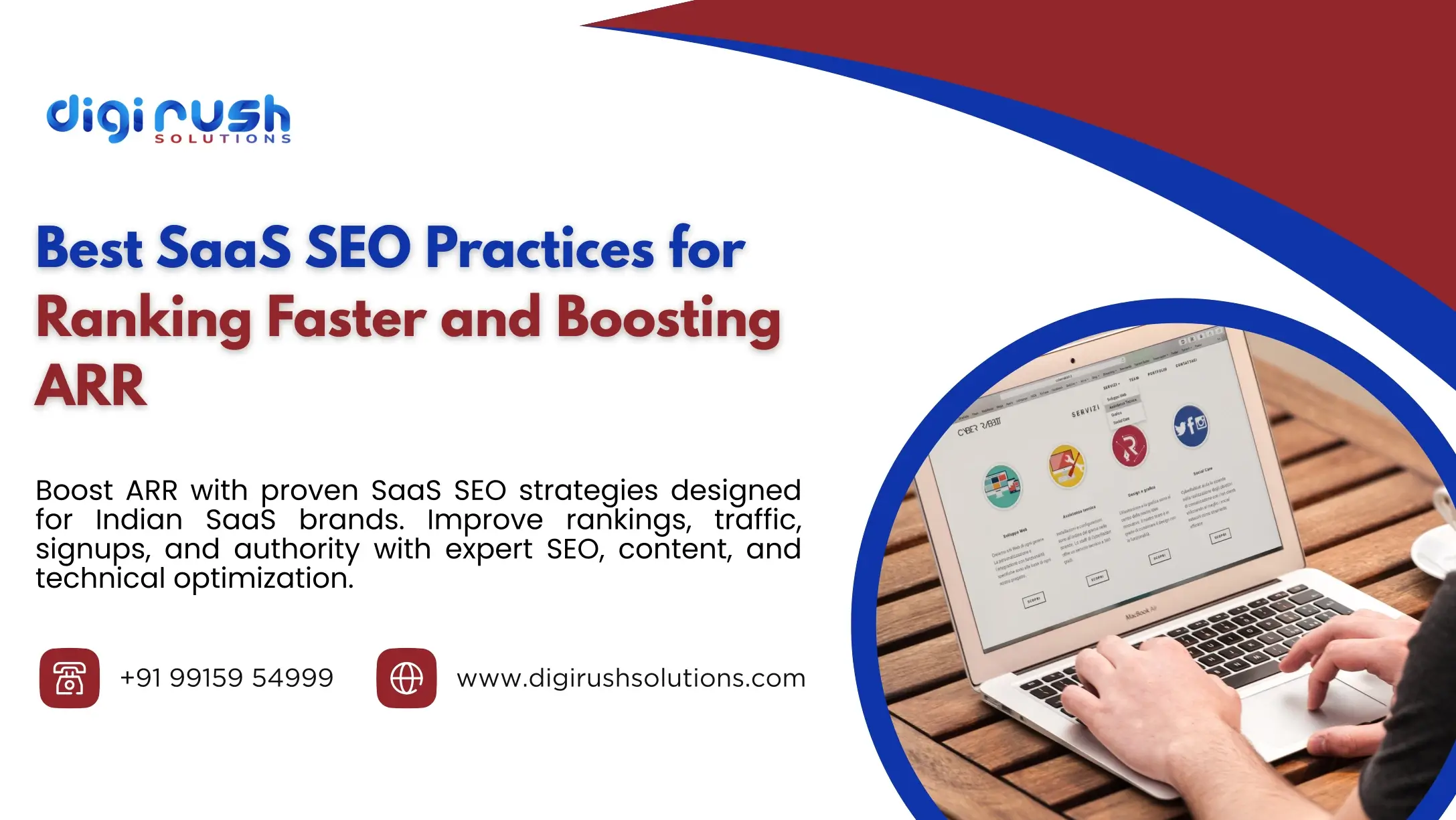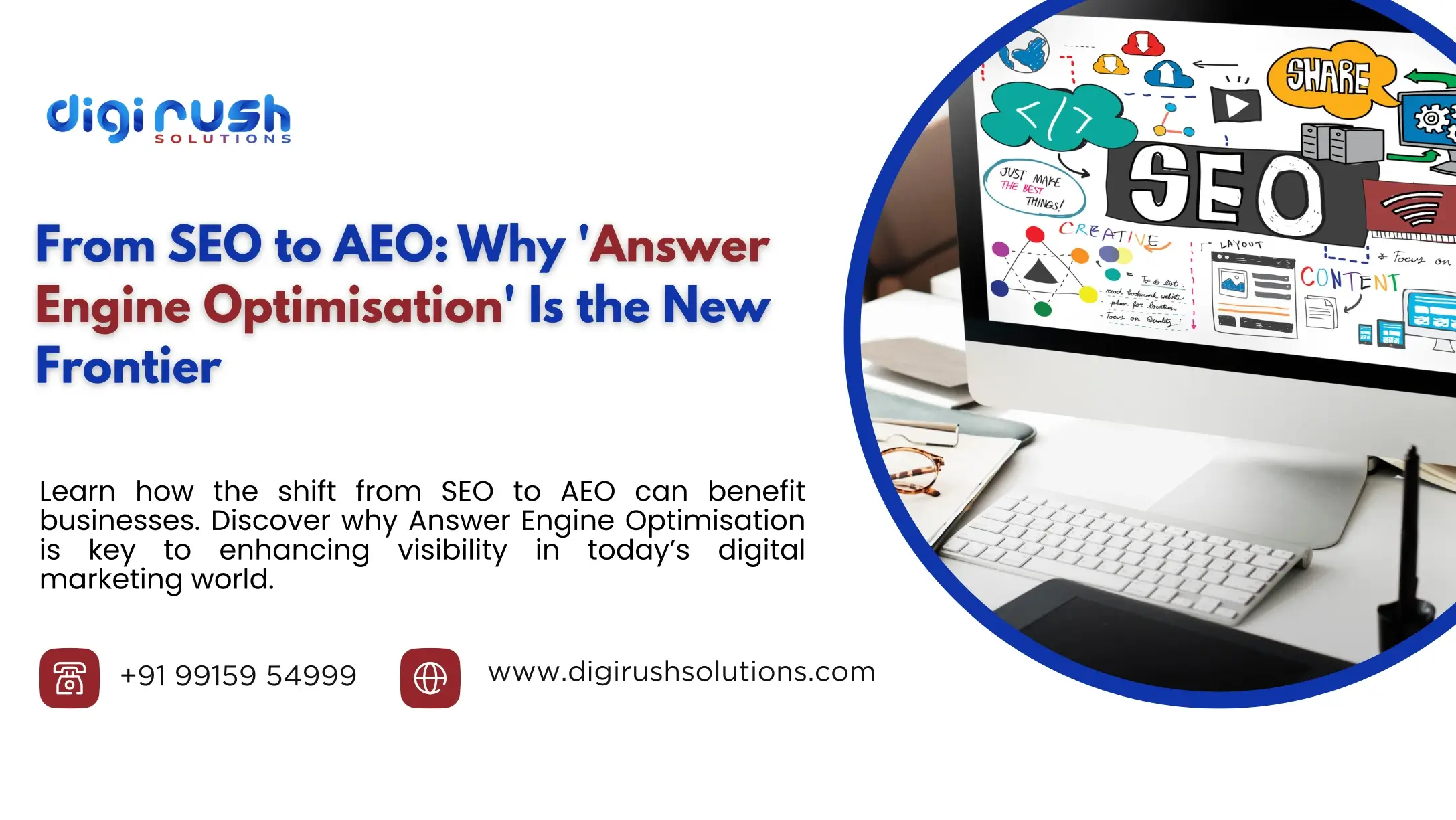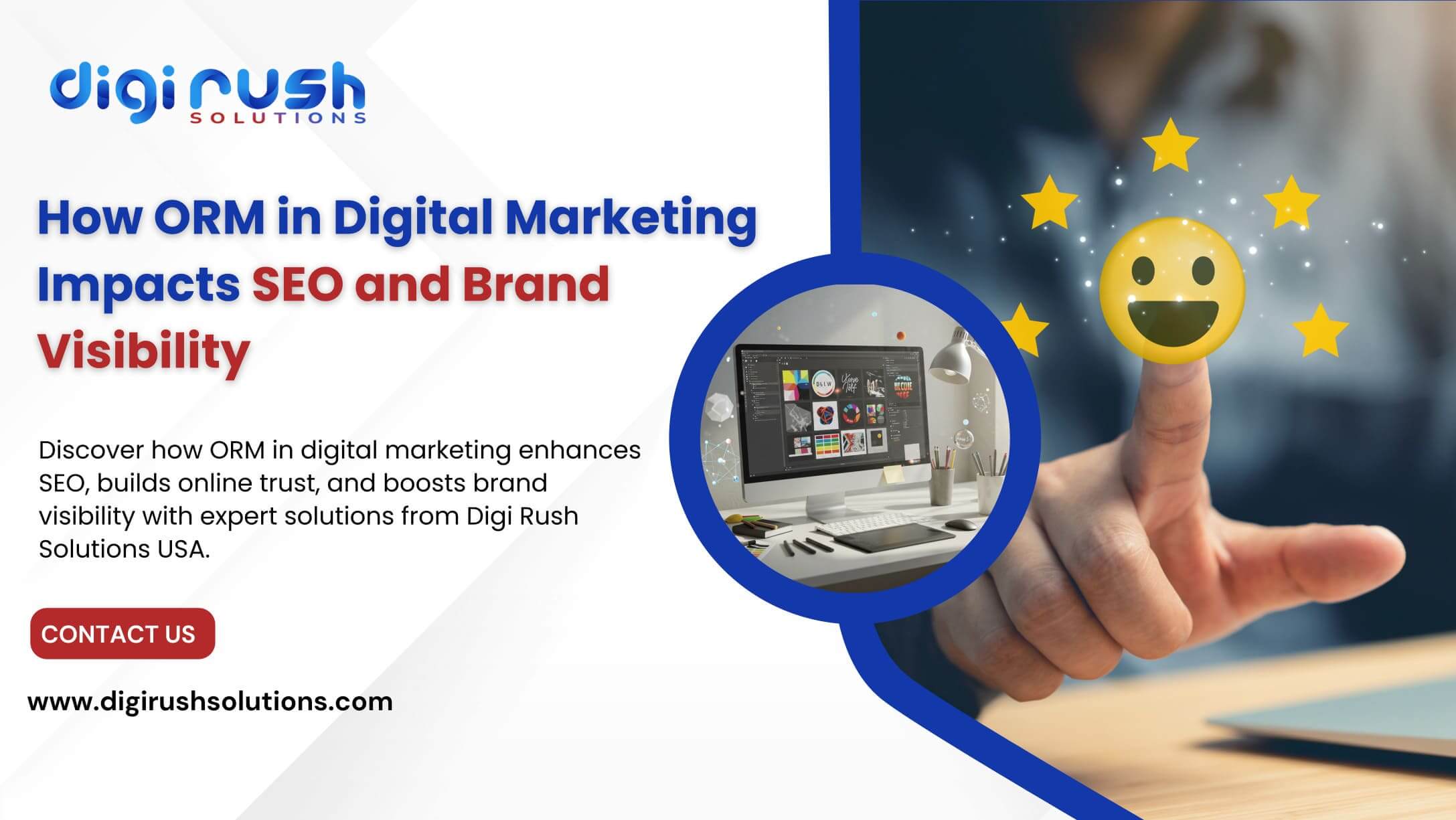
When people look for your business online, the first thing they get isn't from your website — it's from others speaking about you. That may be Google reviews, social media, or online articles. By the time they click your link or dial your number, they have already formed an opinion about your brand.
That's the crux of ORM in internet marketing services, also known as Online Reputation Management. It's less about controlling and optimizing how your business is represented online, so that potential customers, partners, or investors see you in the best possible light.
At Digi Rush Solutions, we've helped countless U.S. businesses build strong reputations that not only attract customers but also boost their SEO and overall visibility. Let's dive into how it works and why it matters.
What Exactly Is ORM in Digital Marketing?
ORM on the internet refers to monitoring what is being written about your brand online and ensuring that the information is accurate, positive, and credible.
It's claiming ownership of your online presence — your reviews, news articles, social media posts, and even search results — so your reputation reflects your authentic values and abilities.
In simple terms:
Is your digital reputation enhancing or detracting from your brand?
When a person searches for your company name and finds outdated information, irate complaints, or nothing at all, it hurts your credibility. A strong ORM strategy ensures that individuals can see the correct message about your business wherever they search.
How ORM Impacts Digital Marketing
Reputation is crucial in digital marketing. A study reveals that over 90% of American consumers purchase products after viewing online reviews, and more than 80% trust Google reviews as much as word-of-mouth recommendations.
When people search for you online, what they see can either reinforce your confidence or instill doubt.
A bad reputation — or, worst of all, no online reputation at all — will hurt sales, partnerships, and even hiring. Or a good reputation, built up over time, creates long-term brand loyalty.
That's why the role of ORM in internet marketing is so significant. It forms attitudes, drives traffic, and has a direct influence on how search engines list your business.
How to Analyze Your Online Reputation
Before you bolster your brand reputation, you have to know where you are. Here's where you start:
Step 1: Google Yourself
Google your business name, product names, or even key personnel.
Ask yourself:
- Do you appear in the first five results?
- Are they positive and relevant?
- Do they reflect expertise or thought leadership (articles, mentions, awards)?
- Is there negative criticism or old information?
If your brand doesn't appear near the top or has destructive content, you need to do ORM.
Step 2: Claim Your Google Business Profile
Your Google Business Profile (formerly Google My Business) is often the first thing potential customers see.
Make sure:
- The business name, address, phone number, and website are correct.
- Hours and services are up-to-date.
- Pictures and descriptions are up-to-date and professional.
- A solid profile boosts trust and local SEO ranking.
Step 3: Verify Your Social Media Profile
Review your Facebook, Instagram, Twitter, and LinkedIn profiles.
Look for:
- How often do you post and engage with others?
- How quickly you reply to messages and comments.
- Whether your tone aligns with your brand personality.
- What others are posting about your brand.
Social media isn't just for broadcasting; it's also for listening. When negative mentions appear, respond professionally and constructively. Engaged consumers will often rush to the defense of brands that listen freely.
Step 4: Audit Your Online Reviews
Review your profiles on:
- Google Reviews
- Yelp
- TrustPilot
- Facebook Recommendations
- Glassdoor (for employer reputation)
Examine:
- How many reviews do you have?
- What's your average rating?
- Are you responding regularly to customer feedback?
- Keep in mind that no reviews can be as damaging as bad ones. Individuals use reviews to help them determine whom they can trust.
Steps to Improve and Manage Your Reputation
After identifying your current online reputation, the next step is to regain control of it. Below is a tested approach used by Digi Rush Solutions to integrate ORM and SEO for US businesses.
1. Claim All Online Profiles
Own your online property. Claim your business listings on Google, Bing, Yelp, Yahoo, and even places like CitySearch or YP.com.
Claim or verify your social media presence on LinkedIn, Facebook, and Instagram. Even if you do not plan to post frequently, registering your brand name helps prevent impersonation or the dissemination of false information.
By itself, this gets Google's attention to your authority and builds up trust signals for your brand.
2. Set Up Monitoring Tools
The best way to avoid a reputation crisis is to catch it early.
Utilize free tools like Google Alerts or paid options such as Mention, Brand24, or Hootsuite to track your company name, product names, and executive mentions.
That way, you'll know immediately when someone talks about your business — whether it's a news article, blog post, or customer review.
3. Empower Your Team to Represent the Brand
Your employees are your brand ambassadors. Ask them to maintain their online profiles professionally, be positive in their engagement, and share company updates.
When your employees and management have genuine online profiles, it reflects positively on your business. Think of how individuals recognize Tim Cook with Apple or Elon Musk with Tesla — that is the power of personal branding in ORM.
4. Improve SEO and Content Strategy
If your business is not appearing well on search results, you may require a stronger SEO approach.
SEO takes good content and pushes it higher up — such as blog posts, press releases, or customer testimonials — while sending the bad or irrelevant ones lower.
We combine ORM with SEO, content development, and PPC services in India to offer measurable growth for international and U.S. clients. Our approach ensures every positive article, review, or case study supports your online credibility.
Even mentioning expert opinions or customer success stories can leave a significant impression on how search engines (and people) perceive your business.
5. Align PR and Community Outreach
On some occasions, the most effective way to build your reputation is through action. Partner with local charities, sponsor events, or work with respected organizations.
When respected sources talk about your brand, they convey powerful signals to your audience and search engines as well. Favorable press coverage is one way to replace old or outdated search results with new, authentic content.
This is a strategy even the biggest web service providers in America follow — being active, present, and actively connected to their communities for both brand standing and SEO strength.
6. Leverage ORM Specialists
If social media, reviews, and brand mentions become too much to manage, having experts intervene saves time and secures your brand's reputation.
Companies like Digi Rush Solutions specialize in ORM, combining SEO, content management, and review management to ensure your online reputation is favorable and profitable.
We also help launch review campaigns — inviting satisfied customers to share their experiences — and craft custom responses to effectively address negative feedback.
The Connection Between ORM and SEO
ORM and SEO are not opposing methods; they work hand in hand.
This is how ORM enhances your SEO performance:
- More Positive Reviews → Improved Click-Through Rates: People are more likely to click on trusted listings first.
- More Engagement → Increased Rankings: Responses to reviews and updated content show activity.
- More Authority → Weaker Domain Trust: Quality mentions and backlinks build SEO metrics.
- More Consistency → Improved Local SEO: Accurate NAP data and active profiles help with local searches.
The value of ORM for online marketing lies in its ability to establish trust and drive traffic.
Why ORM Is an Ongoing Process
Online Reputation management isn't a one-time task — it's an ongoing process. New reviews, news stories, or social networking phenomena can, in the blink of an eye, transform your brand image.
Regular monitoring, review engagement, and the creation of new content are the keys to building a strong online reputation that yields long-term dividends for SEO.
Businesses that stay on course with ORM have:
- Increased organic reach
- Better quality leads
- Greater brand loyalty
- Increased customer retention
Final Thoughts
Your brand reputation is your most precious marketing asset. If people don't trust what they see on the Internet, no amount of advertising will make them believe otherwise.
ORM in online marketing makes sure your internet presence benefits you, not hurts you. It defends your reputation, develops expertise, and enhances your position on Google.
If you're ready to strengthen your brand visibility and credibility across search engines and social media, partner with Digi Rush Solutions — a trusted name in ORM, SEO, and ppc services in India, serving as one of the best web service providers for U.S. and international businesses.
Recent Blog





